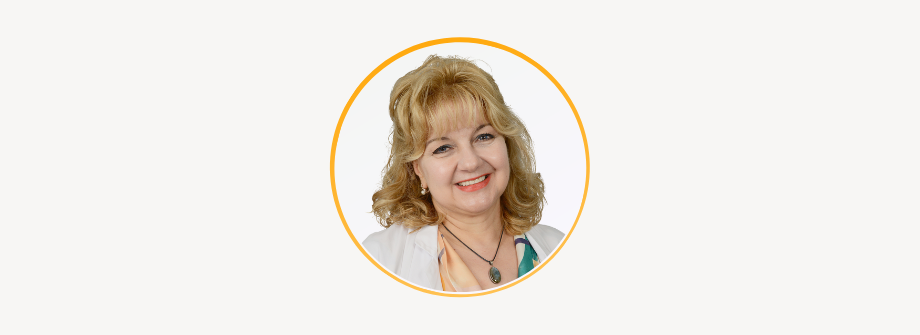
Inspectors are the backbone of JACIE; without them, there is no accreditation process. Becoming an inspector is a wonderful way to contribute to maintaining global quality standards. As the number of JACIE applications has increased, we are constantly looking for new inspectors to join our ranks. At the moment, we are particularly keen to hear of German, French and Spanish speaking Clinicians and Quality Managers.
Each month, you will have the opportunity to meet with one of our JACIE Inspector who will share his/her experience.
Read our interview with Kamelia Alexandrova.
Introduce yourself and your role(s) and position(s) within EBMT and outside of EBMT
My name is Kamelia Alexandrova, a Haematologist. I studied Medicine and specialised in Internal Medicine and Haematology in Medical University of Sofia (Bulgaria). My professional journey began at the Department of Haematology in the University Hospital "Alexandrovska" in Sofia. Since then, I have pursued further expertise through specialisations in autologous and allogeneic transplants in Paris. Since 2011, I've been privileged to work in the Department of Haematology at Gustave Roussy Cancer Campus, Paris. In this role, I oversee the Apheresis unit, engaging in a diverse array of activities including stem cell collection for autologous transplant for adults and children, CAR T cell, stem cell collection for allogeneic transplant, collection for donor lymphocyte infusion, and extracorporeal photochemotherapy among others.
One of my particular areas of focus lies in apheresis procedures for children weighing less than 10 kg. This niche area of interest drives my dedication to ensuring the best possible care for these young patients.
Beyond my clinical responsibilities, I also serve as a hemovigilant at Gustave Roussy, contributing to the continual enhancement of safety and quality assurance within our institution.
Why did you decide to become a JACIE inspector?
I decided to become a JACIE inspector primarily to deepen my understanding of the JACIE-FACT certification process. Assuming the JACIE inspector’s role gave me the great opportunity to compare practices across various centres, ultimately enhancing our own procedures. Interacting with inspectors from different countries is not only motivating but also enriching, as it allows for the exchange of insights and best practices. My journey began with attending the JACIE inspector course in 2022, and I officially became a JACIE inspector in 2023, eager to contribute to the improvement of standards in our field.
What has been the most memorable inspection that you have ever done?
As a relatively « young »inspector I acknowledge that my experience may not be as extensive as others, but I firmly believe that every inspection brings its own unique insights. My first inspection was in apheresis collection for the re-accreditation of the transplant centre Hopital Pitié-Salpêtrière in Paris, and it proved to be a significant experience and challenge. The collaboration with the apheresis team was exemplary. I was impressed by their professionalism and dedication to rigorous standards. Throughout the process, I received invaluable support from my fellow inspectors, which greatly contributed to my learning experience. Witnessing firsthand the level of professionalism demonstrated by the team left a lasting impression on me. I walked away from the inspection with a wealth of knowledge and ideas that I wish to implement in our centre.
What ‘keys to successful JACIE accreditation’ can you share with us?
To excel as an inspector, it is essential to embody qualities like motivation, patience, and a willingness to invest the necessary time to familiarise oneself with the checklist thoroughly. Do not hesitate to request any missing documents and engage in discussions with fellow inspectors if any aspects are unclear. This collaborative approach provides valuable insights into the strong and weak points of the transplant centre.
Upon arrival at the site, establishing an atmosphere of trust, respect, and transparency is paramount. Check the alignment between practices and actual procedures, and if feasible, conduct interviews with all team members to gain a comprehensive understanding of the facility. Remain prepared to address inquiries, maintaining flexibility, attentiveness, and empathy throughout the inspection process.
At the end of the inspection, prioritise the completion of the inspection checklist and descriptive sections promptly. This timely completion ensures accuracy and allows for any necessary follow-up actions to be initiated efficiently.
How has your career/work benefited from being a JACIE inspector?
Being a JACIE inspector not only gives me confidence and self-esteem, but also provides a profound sense of belonging to this prestigious organisation. I feel useful in contributing to the collective efforts aimed at enhancing the quality of transplant centres. Engaging with new colleagues and continuously expanding my knowledge in quality management within the field has kept me abreast of the latest developments in the JACIE-FACT programme. This journey of professional growth offers me invaluable perspectives and reinforces my commitment to upholding and advancing quality standards in transplantation.
Do you have any tips or advice for anyone who aspires to become a JACIE Inspector?
Becoming a JACIE inspector is more than just a role - it aligns with your innate traits and personality. You should be professional, objective, patient and flexible enough to ensure the delicate balance between adherence to requirements and tolerance.
An open-minded approach to diverse experiences is vital as each JACIE inspection serves as a platform for professional exchange aimed at continuous improvement. Each inspection with its strong and weak points is a great experience for you and for the entire team involved in the process. Thus, every inspection presents an invaluable opportunity for learning and development.